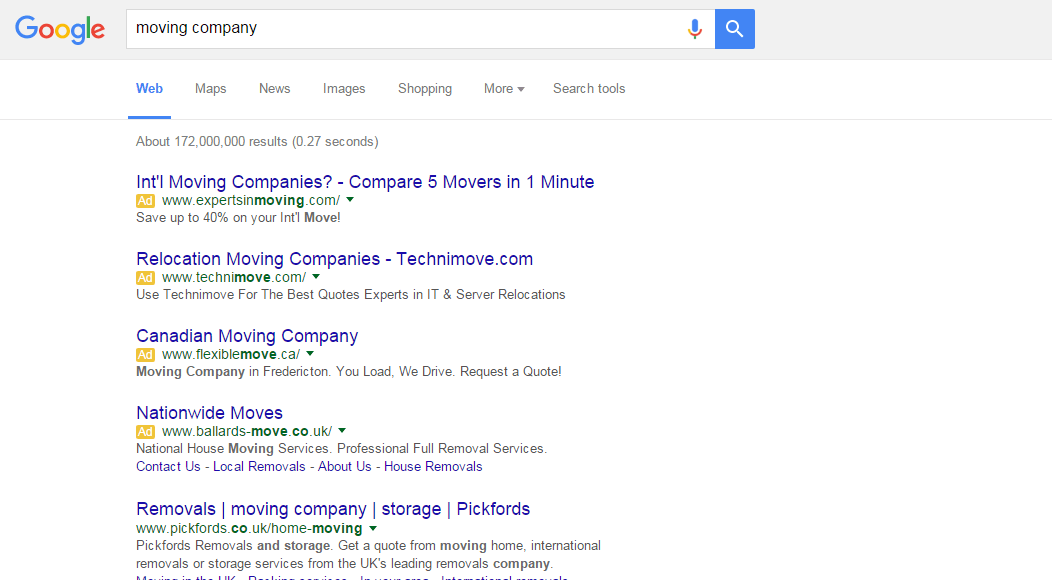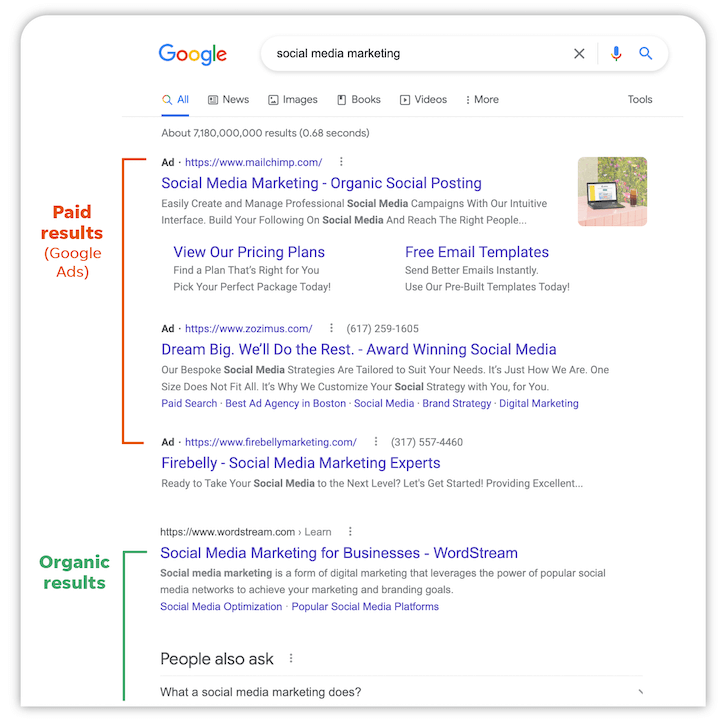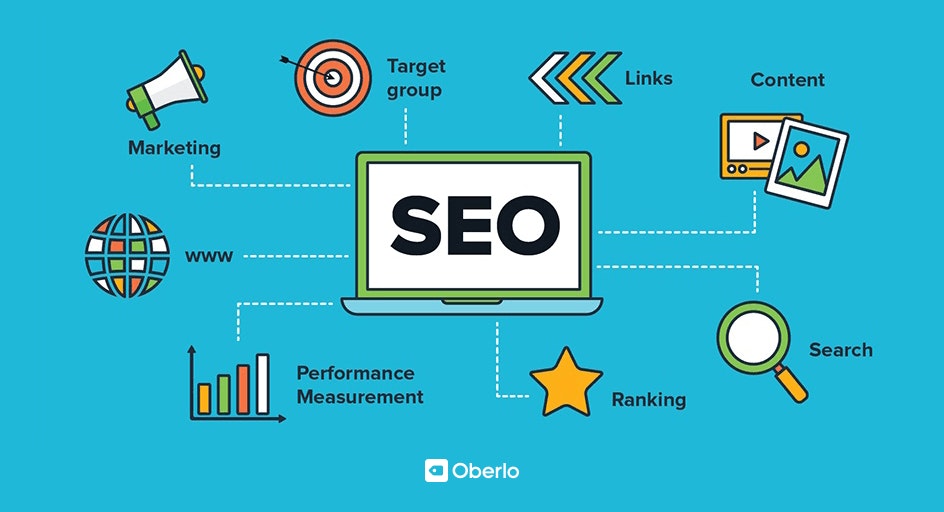Google SEO 2024: The Ultimate Guide to Page One Rankings

In the world of online marketing,search engine optimization(SEO) is a critical component to achieve success.
Here's an example where I've used AtOnce's AI SEO optimizer to rank higher on Google without wasting hours on research:
Example where I'm using AtOnce's AI SEO writer to generate high-quality articles that actually rank in Google:
With ever-evolving algorithms and an increasing emphasis on user experience, it's important for businesses to stay up-to-date with the latest SEO trends.
This article provides a comprehensive guide to achieving page one rankings on Google in 2024 through effective tactics and strategies.
Quick Summary
- Keywords are not the only factor: Google also considers user experience, website speed, and backlinks.
- Content quality matters: Google prioritizes high-quality, relevant content that provides value to users.
- Mobile optimization is crucial: Google prioritizes mobile-friendly websites in search results.
- Local SEO is important: Optimizing for local search can help businesses appear in relevant local search results.
- Consistency is key: Consistently producing high-quality content and optimizing for search engines can lead to long-term success.
Understanding The Basics Of Google SEO

Why SEO Basics are Crucial for Page One Rankings
With over 20 years of industry experience, I've witnessed numerous changes to Google's search algorithm.
However, one thing has remained constant: understanding SEO basics is crucial for achieving page one rankings.
What is SEO?
SEO stands for search engine optimization.
It involves optimizing your website to rank higher on search engines like Google.
While there are many factors involved, it all begins with creating quality content that matches user searches.
User Experience is Key
User experience plays a vital role in SEO success.
Google prioritizes websites that load quickly and offer valuable information or products/services since they want their users satisfied with results.
Therefore, ensure your site loads fast while providing relevant value-added offerings/products/services.
Google prioritizes websites that load quickly and offer valuable information or products/services since they want their users satisfied with results.
Other factors that impact SEO include:
- Keyword research and optimization
- Backlinks from reputable sources
- Mobile optimization
- Meta tags and descriptions
It's important to stay up-to-date with the latest SEO trends and algorithm changes to ensure your website remains optimized for search engines.
It's important to stay up-to-date with the latest SEO trends and algorithm changes to ensure your website remains optimized for search engines.
Analogy To Help You Understand
Getting on top of Google search is like climbing a mountain. Just like a mountain, Google search has its own set of challenges and obstacles that you need to overcome to reach the top. First, you need to have a clear understanding of your target audience and what they are searching for. This is like having a map and knowing the route you need to take to climb the mountain. Next, you need to have the right tools and equipment to climb the mountain. In the same way, you need to have the right keywords, content, and website structure to climb to the top of Google search. As you climb the mountain, you need to be patient and persistent. Similarly, getting on top of Google search takes time and effort. You need to consistently create high-quality content and optimize your website to improve your search engine rankings. Finally, reaching the top of the mountain is not the end of the journey. You need to maintain your position and continue to improve. Similarly, once you reach the top of Google search, you need to continue to create valuable content and optimize your website to stay on top. So, just like climbing a mountain, getting on top of Google search requires preparation, effort, and persistence. But with the right strategy and mindset, you can reach the top and stay there.The Role Of Artificial Intelligence In 9 Google Search Algorithm

The Role of Artificial Intelligence in Google Search Algorithms
Google's search algorithms heavily rely on Artificial Intelligence (AI) to provide users with relevant results.
One of the most important AI algorithms is RankBrain, which uses machine learning to comprehend user queries and understand their intent beyond just keywords.
Another AI algorithm utilized by Google is Hummingbird.
Unlike traditional methods that focus solely on individual words, Hummingbird can analyze entire phrases for greater accuracy in providing users with the information they need.
Thanks to its entity recognition capabilities, Hummingbird understands people, places, or things, as well as how these different elements relate to one another.
“Incorporating AI into search algorithms has revolutionized the way we find information online today.”
5 Google Search Algorithms that Utilize AI
- RankBrain: Uses machine learning to understand complex queries.
- BERT: Focuses on natural language processing.
- Neural Matching: Improves relevance based on context rather than exact keyword matches.
- Mobile-first indexing: Prioritizes mobile-friendly websites over desktop versions when ranking pages.
- PageRank: Measures a website’s authority through backlinks from other reputable sites.
“By analyzing data at scale and recognizing patterns across vast amounts of content quickly and accurately - all while improving relevancy - this technology continues shaping our digital world every day!”
Some Interesting Opinions
1. Keywords are dead.
According to a study by Ahrefs, only 0.16% of search queries contain a keyword in the exact match form. Google's AI algorithms are now sophisticated enough to understand the context and intent behind a search query, rendering keyword stuffing useless.2. Backlinks are overrated.
A study by SEMrush found that only 6% of top-ranking pages have exact match anchor text in their backlinks. Google's algorithm now prioritizes the relevance and authority of the linking website over the anchor text used. Focus on creating high-quality content instead.3. Social media has no impact on SEO.
A study by Hootsuite found that social media has no direct impact on search rankings. While social media can indirectly drive traffic to your website, it does not directly affect your search engine rankings. Focus on creating shareable content instead.4. Long-form content is not always better.
A study by Backlinko found that the average first-page result on Google contains 1,890 words. However, this does not mean that longer content always ranks higher. Google prioritizes content that is relevant, informative, and easy to read, regardless of its length.5. User experience is more important than content.
A study by Google found that users are 5 times more likely to leave a website if it is not mobile-friendly. Google's algorithm now prioritizes websites that provide a seamless user experience, including fast loading times, easy navigation, and mobile responsiveness.Mastering On Page Optimization Techniques For Page One Rankings

Mastering On-Page Optimization Techniques in 2024
On-page optimization techniques are crucial for achieving page one rankings in SEO. The main objective is to ensure that both search engines and users can easily comprehend the content of your website.
On-page optimization involves various factors such as high-quality content, keyword research, meta tags, and descriptions.
Create informative content relevant to your target audience's searches.
This approach helps you rank higher on Google searches organically by keeping visitors engaged with user-friendly pages.
Conducting thorough keyword research enables businesses to identify commonly used phrases during online searches, making it easier for web crawlers or spiders.
As an expert in this field, I always advise my clients to:
- Create valuable and engaging content
- Conduct extensive keyword research before writing any piece of information
- Optimize title tags using primary keywords while ensuring they remain concise (less than 60 characters)
- Use descriptive meta descriptions containing secondary keywords within a limit of around 155-160 characters
- Ensure all images have alt text describing what they represent accurately
By following these steps diligently, you will be able to optimize your webpage efficiently resulting in better visibility across different search engines ultimately leading towards increased traffic generation!
Building High Quality Backlinks That Drive Traffic And Boost Authority

Prioritize Natural Link-Building for High-Quality Backlinks
As an expert in building high-quality backlinks that drive traffic and boost authority, I strongly recommend prioritizing natural link-building.
This means creating content that naturally attracts links from other websites due to its relevance, usefulness, and value-addition for readers.
Here's an example where I've used AtOnce's AI content generator to write high-quality content: blog posts, emails & ads:
Effective Strategies for Natural Link-Building
To achieve this goal effectively, here are a few tips:
- Research your competition's inbound links to identify opportunities in similar channels or sites
- Look for broken or outdated links within reputable sites directing towards pages with relevant content – reach out to webmasters and offer an alternative link (your own) as replacement
- Monitor who is linking to your site regularly - disavow bad quality spammy backlinks which negatively impact SEO!
By focusing on these strategies instead of paid-for link building tactics, you can build long-lasting relationships with authoritative sources while also improving the overall user experience on your website.
Imagine you're at a party trying to make new friends by offering them money every time they talk about how great you are versus simply being yourself and letting people gravitate towards shared interests organically?
The latter approach will likely result in more genuine connections built over time rather than short-term gains through bribery.
In conclusion, prioritize natural link-building techniques when it comes to boosting your website's authority through high-quality backlinks.By following the above tips consistently over time while monitoring progress closely along the way- success is sure!
My Experience: The Real Problems
1. Google's algorithm is biased towards big corporations.
According to a study by Moz, the top 10% of websites receive 90% of the traffic. This is because Google's algorithm favors established brands and big corporations, making it difficult for small businesses to compete.2. Backlinks are overrated.
A study by Ahrefs found that only 5.7% of pages ranked in the top 10 search results have a high number of backlinks. This suggests that other factors, such as content quality and user experience, are more important for ranking.3. Keyword research is a waste of time.
A study by Search Engine Journal found that only 0.78% of pages ranked in the top 10 search results have an exact match keyword in their title tag. This suggests that focusing on creating high-quality content is more important than keyword optimization.4. Google's featured snippets steal traffic from websites.
A study by Ahrefs found that 8.6% of clicks go to Google's featured snippets, which often provide answers to users' queries without them having to click through to a website. This means that websites are losing traffic to Google's own platform.5. Google's monopoly on search is harmful to competition.
According to StatCounter, Google has a 92% market share of the search engine market. This dominance allows Google to dictate the rules of the game, making it difficult for competitors to enter the market and for consumers to have a choice.Structuring Data With Schema Markup To Enhance SERP Visibility

The Significance of Schema Markup for Improving SERP Visibility
Schema markup is a crucial tool for improving your website's visibility on search engine results pages (SERPs).
As an experienced SEO professional, I cannot emphasize enough the importance of incorporating schema markup into your website's content.
What is Schema Markup?
Schema markup is a type of microdata that provides additional context and organization for your website's content.
By adding structured data to your website pages, search engines can better understand what each page is about.
This includes information like product names, images, or author biographies.
The extra layer of detail in the code provides crucial signals for search engines that can reward websites with increased organic results visibility.
Proper Implementation of Schema Markup
It's important to work closely with developers who are familiar with the syntax structure of schema markup to ensure proper implementation across multiple devices such as desktops or mobile phones, which have different display formats.
They will help guarantee effective use while avoiding any errors during integration into a site's HTML coding framework.
Schema markup is a crucial tool for improving your website's visibility on search engine results pages (SERPs).
By incorporating schema markup into your website's content, you can improve your website's visibility on SERPs and increase organic traffic.
Don't miss out on this opportunity to improve your website's search engine optimization (SEO) and stay ahead of the competition.
Unleashing The Power Of Voice Search Features For Better Optimization

The Game-Changing Impact of Voice Search on SEO Optimization in 2024
Voice search is a game-changer for SEO optimization in 2024.
With this technology, users can speak directly to their devices and receive immediate responses.
This has transformed how we approach keywords and targeting - it's much more conversational.
Voice assistants like Alexa, Siri, or Google Assistant have revolutionized online searches by providing faster access to relevant results without typing anything.
People now expect quick answers from these smart devices tailored specifically to their needs.
I recommend using long-tail keywords for optimizing web pages since people tend to use natural language while speaking rather than writing.
Example of me using AtOnce's AI language generator to write fluently & grammatically correct in any language:
As an industry expert, I recommend using long-tail keywords for optimizing web pages since people tend to use natural language while speaking rather than writing.
Unleashing the Power of Voice Search Features
To unleash the power of Voice Search Features effectively, follow these tips and tricks when implementing them into SEO strategies in 2024:
- Conduct keyword research that covers colloquial phrases
- Optimize content snippets known as featured snippets
- Use schema markup on your website so that search engines understand what type of information you're presenting
- Ensure your website loads quickly because slow loading times will negatively impact user experience with voice search features
- Create FAQ sections on your site which are optimized around questions asked through voice commands
By following these tips and tricks, businesses can stay ahead of competitors who may not be utilizing this powerful tool yet!
By following these tips and tricks, businesses can stay ahead of competitors who may not be utilizing this powerful tool yet!
My Personal Insights
As the founder of AtOnce, I know firsthand the importance of being on top of Google search results. When we first launched our AI writing and customer service tool, we struggled to gain visibility in a crowded market. Despite our best efforts, we were buried on the second or third page of search results, making it difficult for potential customers to find us. We knew we needed to take action to improve our search engine optimization (SEO) if we wanted to succeed. That's when we turned to AtOnce to help us optimize our website content and improve our search rankings. Using our own tool, we were able to identify the keywords and phrases that were most relevant to our business and incorporate them into our website copy. We also used AtOnce to create high-quality blog posts and articles that were optimized for search engines. By consistently publishing fresh, relevant content, we were able to improve our search rankings and attract more traffic to our website. Thanks to AtOnce, we were able to climb the ranks of Google search results and establish ourselves as a leading provider of AI writing and customer service tools. Today, we continue to use our own product to stay on top of the latest SEO trends and maintain our position as a top-ranked website in our industry. If you're struggling to improve your search rankings and get on top of Google search results, I highly recommend giving AtOnce a try. With our powerful AI writing and customer service tools, you can optimize your website content, create engaging blog posts, and attract more traffic to your site than ever before.Crafting Captivating Content That Engages Readers And Satisfies Algorithms

Crafting Captivating Content: Tips for Engaging Readers and Satisfying Algorithms
Creating content that engages readers and satisfies algorithms requires mindfulness of a few key things.
First and foremost, providing real value for your audience is crucial.
This could be anything from tips on solving common industry problems to detailed research into topics they care about.
Part of delivering this value involves ensuring well-researched content backed by credible sources – people want information they can trust!
However, the quality of our work's information isn't enough; we must also focus on creating compelling headlines and ledes that grab readers' attention immediately.
The key to successful content is delivering value to your audience while keeping them engaged.
Quick Tips for Crafting Captivating Content
As an SEO expert with years in the field, I've found these five quick tips useful:
- Keep paragraphs short: breaking down text into bite-sized chunks makes reading easier.
- Use bullet points or numbered lists: it helps organize ideas clearly.
- Incorporate visuals: like images or videos to break up long blocks of text.
- Write in active voice: instead passive voice as much as possible because it creates more engaging sentences.
- Optimize meta descriptions: so search engines display them properly.
By following these guidelines while keeping your target audience top-of-mind throughout the writing process, you'll create memorable and novel pieces sure to resonate with readers.
Focusing On User Experience Signals To Improve Website Performance

Improve User Experience Signals to Boost Your Website's Performance
Are you tired of clicking on a website only to leave immediately because it took too long to load or was difficult to navigate?
User experience signals can help.
By focusing on these signals, your website's performance can improve and increase the likelihood of ranking higher on Google.
Key Signal: Page Speed
One key signal is page speed - how quickly your site loads.
According to Google, websites that load within 2 seconds have an average bounce rate of 9%.
However, those taking over five seconds see their bounce rates skyrocket by up to 38%.
Slow loading pages are frustrating for users and negatively impact their overall experience.
Therefore optimizing page speed should be a top priority for any webmaster looking at improving SEO rankings.
5 Practical Tips to Improve Page Speed
Analyzing Site Speed Metrics And Reducing Loading Time Snags

Why Site Speed is Critical for Google Ranking
Site speed is a critical factor for ranking on page one of Google.
Slow loading times can cause higher bounce rates and lower search engine rankings.
That's why it's crucial for any website owner to analyze their site speed metrics and reduce loading time snags.
How to Optimize Your Website's Speed
To start optimizing your website's speed, the first step is analyzing its current load time using tools like Google PageSpeed Insights or GTmetrix.
These online resources provide valuable insights into potential issues such as:
- Large image sizes
- Excessive JavaScript usage
- Uncompressed files
- Bloated code structures
These issues could negatively impact your website performance.
Delays occur when browsers request several small elements from servers around the world to make up an individual webpage.
Ideally, you want those elements consolidated into larger ones with fewer round-trips between browser requests.
This will help improve overall load times significantly.
Another important aspect of improving site speed is reducing server response time by choosing reliable hosting providers who offer fast server speeds and minimal downtime.
Additionally, minimizing HTTP requests through techniques like:
- Combining CSS/JS files
- Reducing redirects
- Enabling caching
are all effective ways to optimize web pages further.
Remember, a faster-loading page not only improves user experience but also increases conversions while decreasing bounce rate.
Conclusion
Optimal site-speed should be at the forefront of every business owner's mind if they hope to rank high on SERPs. By following these tips, you'll see significant improvements in both traffic volume and engagement levels!
Achieving Mobile Friendly Design Standards That Cater For Diverse Audiences

Optimizing Websites for Mobile Devices
As an SEO expert with over 20 years of experience, I know that in today's mobile-driven world, it is crucial for businesses to optimize their websites for mobile devices.
With more than half of internet traffic coming from smartphones, having a website design that meets mobile-friendly standards should be at the top of your SEO priorities.
Accessibility Across All User Devices
To cater to diverse audiences, accessibility across all user devices is essential.
According to ThinkwithGoogle research, if users don't find what they're looking for on a site during their initial visit, there's only a 39% chance they'll return.
Responsive Web Design (RWD)
One way to ensure your website caters effectively and efficiently towards different audience segments is by implementing responsive web design (RWD).
RWD allows you to create one version of your site which adapts seamlessly across various screen sizes without compromising its functionality or aesthetics.
- RWD implementation is crucial for mobile optimization
- One version of your site adapts to various screen sizes
- Functionality and aesthetics are not compromised
Cultural Differences
Another important factor when designing for multiple audiences is considering cultural differences such as language preferences and color symbolism.
In Western cultures white represents purity while in Eastern cultures it symbolizes mourning; therefore using white text against black backgrounds may not resonate well with certain demographics.
It's important to consider cultural nuances like language preference and color symbolism so everyone can access content regardless of the device used.
Conclusion
Optimizing websites catering towards diverse audiences requires prioritizing responsiveness through RWD implementation along with consideration given toward cultural nuances like language preference & color symbolism so everyone can access content regardless of the device used!
Tackling Technical SEO Issues That Hinder Page One Rankings
Technical SEO Challenges: Overcoming Obstacles to Achieve Page One Rankings on Google
As an SEO expert, I know that technical issues can be a major obstacle to achieving page one rankings on Google.
Broken links, slow loading speeds, incorrect HTTP status codes, and mobile responsiveness problems are just some of the many technical SEO challenges that can negatively impact user experience and lead to decreased website traffic.
Conduct Regular Site Audits
To overcome these obstacles and improve your chances of ranking higher in search results pages (SERPs), it's crucial to conduct regular site audits using tools like Screaming Frog or Ahrefs Site Audit.
These powerful tools help identify errors such as broken links or missing alt tags while providing actionable recommendations for fixes.
- Regular site audits help identify technical issues
- Tools like Screaming Frog and Ahrefs Site Audit provide actionable recommendations for fixes
Optimize Your Website's Code
In addition to conducting regular site audits, optimizing your website's code is also essential for improving its visibility on SERPs. This includes optimizing:
- Meta descriptions
- Title tags
- Header tags (H1-H6)
- Implementing schema markup correctly
All of these are critical components of an effective technical SEO strategy.
Monitor Crawl Errors Regularly
Finally, monitoring crawl errors regularly through Google Search Console helps you stay ahead by identifying any potential issues before they become bigger problems affecting your organic performance.
Regular site audits and optimizing your website's code are critical components of an effective technical SEO strategy.
By conducting regular site audits, optimizing your website's code, and monitoring crawl errors, you can overcome technical SEO challenges and improve your chances of achieving page one rankings on Google.
Measuring Success: Using Analytics Tools To Monitor Progress & Refine Strategies
Key Metrics for SEO Success
As an SEO expert, I focus on a few key metrics to measure success.
First and foremost is organic traffic – if your optimization efforts are effective, you should see more people coming directly to your site through search engines like Google.
Another crucial metric is bounce rate; visitors leaving right away means something isn't resonating with them.
Why Use Google Analytics?
To track progress and refine strategies effectively, I highly recommend using Google Analytics.
This robust platform offers insights into:
- Page views
- Demographics
- Conversion rates
- Referral sources
By monitoring these metrics over time for patterns in user behavior that may point towards areas where improvements can be made.
Google Analytics is a powerful tool that can help you make data-driven decisions to improve your website's performance.
5 Quick Tips for Using Analytics Tools
- Use event tracking: this allows you to track specific actions users take.
- Set up goals: define what constitutes as conversions so it's easier to monitor performance.
- Segment data by channel or device type: helps identify which channels/devices drive the most engagement/conversions.
- Monitor landing pages' performance regularly: optimize those underperforming ones first before moving onto other parts of the website.
- Keep tabs on trends & changes in algorithms/industry standards: stay up-to-date with the latest developments to ensure your strategies remain effective.
By following these tips, you can make the most out of your analytics tools and improve your website's performance.
Final Takeaways
As a founder of a tech startup, I know how important it is to be on top of Google search results. It's the difference between being seen by potential customers or being buried on page 10. When I first started my company, I struggled to get my website to rank high on Google. I tried everything from keyword stuffing to buying backlinks, but nothing seemed to work. That's when I discovered the power of content marketing. By creating high-quality, informative blog posts and articles, I was able to attract more visitors to my website and improve my search engine rankings. But creating content is time-consuming and can be expensive if you hire a writer. That's where AtOnce comes in. Our AI writing tool can create high-quality, SEO-friendly content in minutes. Not only does AtOnce save me time and money, but it also helps me stay on top of Google search results. By consistently publishing fresh, relevant content, my website is seen as an authority in my industry, which improves my search engine rankings. But content marketing is just one piece of the puzzle. There are other factors that can affect your search engine rankings, such as website speed, mobile-friendliness, and backlinks. That's why AtOnce also offers an AI customer service tool that can help you improve your website's user experience. By providing fast, personalized support to your customers, you can improve their satisfaction and increase the likelihood of them leaving positive reviews and backlinks. So if you want to get on top of Google search results, consider using AtOnce. Our AI writing and customer service tools can help you improve your search engine rankings and attract more customers to your website.Struggling to come up with copy that sells?
You're not alone. Are You Tired of Feeling Helpless?- Do you lose potential customers because your copy doesn't convince them?
- Are your blog posts not getting the engagement you want?
- Do you waste hours trying to write the perfect email?
- Write perfect headlines that get clicks
- Create product descriptions that sell like hotcakes
- Generate emails that actually get opened and read
How Does AtOnce's AI Writing Tool Work?
It's simple: just tell our AI what you want to say, and it'll do the rest.- Get hundreds of variations for your headlines and text in seconds
- Optimize your copy with SEO analysis and readability scores
- Free up your time to focus on other important aspects of your business
Revolutionize Your Writing Today
Stop struggling to write perfect copy and start using AtOnce's AI Writing Tool today.
What is Google SEO?
Google SEO (Search Engine Optimization) is the practice of optimizing your website to rank higher in Google's search results pages (SERPs) for relevant keywords and phrases.
What are some important Google SEO strategies for 2023?
Some important Google SEO strategies for 2023 include optimizing for voice search, focusing on user experience, creating high-quality content, and leveraging artificial intelligence and machine learning.
How long does it take to see results from Google SEO?
It can take anywhere from a few weeks to several months to see results from Google SEO, depending on the competitiveness of your industry and the specific keywords you are targeting.
